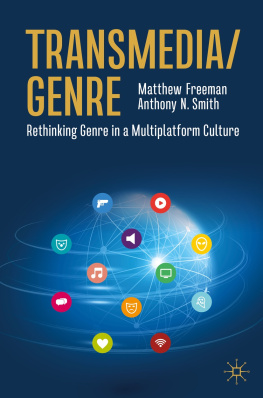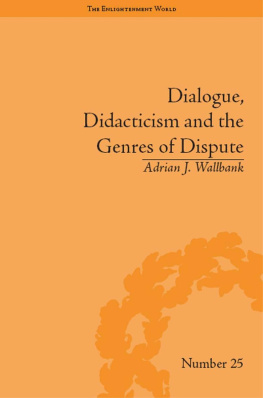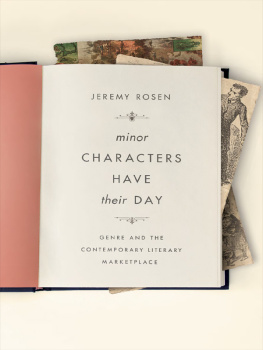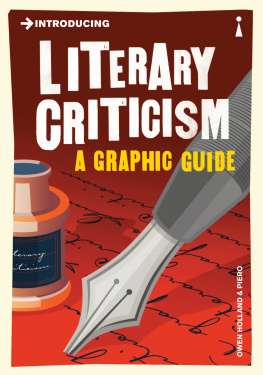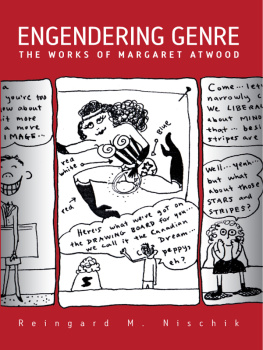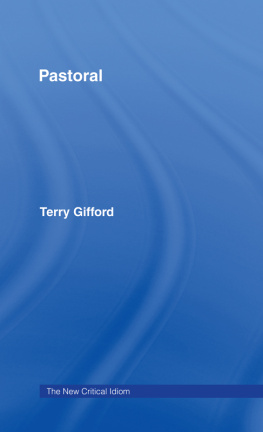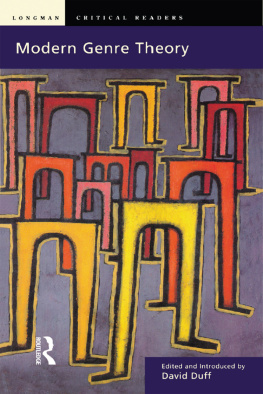

Bloomsbury Studies in Classical Reception
Bloomsbury Studies in Classical Reception presents scholarly monographs offering new and innovative research and debate to students and scholars in the reception of Classical Studies. Each volume will explore the appropriation, reconceptualization and recontextualization of various aspects of the Graeco-Roman world and its culture, looking at the impact of the ancient world on modernity. Research will also cover reception within antiquity, the theory and practice of translation, and reception theory.
Also available in the series:
Ancient Greek Myth in World Fiction since 1989, edited by Justine McConnell and Edith Hall
Ancient Magic and the Supernatural in the Modern Visual and Performing Arts, edited by Filippo Carl and Irene Berti
Classics in Extremis, edited by Edmund Richardson
Greek and Roman Classics in the British Struggle for Social Reform, edited by Henry Stead and Edith Hall
Homers Iliad and the Trojan War, Naose Mac Sweeney and Jan Haywood
Imagining Xerxes, Emma Bridges
Julius Caesars Self-Created Image and its Dramatic Afterlife, Miryana Dimitrova
Ovids Myth of Pygmalion on Screen, Paula James
The Codex Fori Mussolini, Han Lamers and Bettina Reitz-Joosse
The Gentle, Jealous God, Simon Perris
Victorian Classical Burlesques, Laura Monrs-Gaspar
Victorian Epic Burlesques, Rachel Bryant Davies

For our teachers
Contents
The publication of this volume would not have been possible without the help and support of many colleagues, friends, and above all our contributors. We would like to single out, in particular, Emily Greenwood and Fritz Gutbrod, who were of great assistance to us during the process of bringing this volume to life. Special thanks are due to several anonymous reviewers who helped improve the quality of the chapters significantly, and to Sofia Heim for having compiled the indices so swiftly and professionally. Finally, we are grateful to Bloomsbury for having accepted our volume in the Studies in Classical Reception series, and to Emma Payne, Alice Wright, Clara Herberg, Lucy Carroll, Ken Bruce and Merv Honeywood for their untiring support and efficiency.
Silvio Br and Emily Hauser
Oslo and Boston, July 2018
Silvio Br is Professor of Ancient Greek at the University of Oslo. His research interests encompass Greek epic and lyric poetry, Attic tragedy, the Second Sophistic, mythography, rhetoric, intertextuality, narratology and the reception of ancient themes in English literature and popular culture. He is the co-editor of Quintus Smyrnaeus: Transforming Homer in Second Sophistic Epic (2007) and Brills Companion to Greek and Latin Epyllion and Its Reception (2012).
Emma Buckley is Senior Lecturer in Latin and Classical Studies at St Andrews University. She has published widely in early imperial literature, especially Senecan drama and Flavian epic; in early modern reception of Seneca, Ovid and Vergil; and in early modern neo-Latin and vernacular theatre. She is editor (with Martin Dinter) of the Companion to the Neronian Age (Blackwell-Wiley, 2013).
Lilah Grace Canevaro is Lecturer in Greek at the University of Edinburgh. She is the author of Hesiods Works and Days: How to Teach Self-Sufficiency (OUP, 2015) and co-editor of Conflict and Consensus in Early Greek Hexameter Poetry (CUP, 2017). Her forthcoming book Women of Substance in Homeric Epic: Objects, Gender, Agency (OUP, 2018) shines new light on the Iliad and Odyssey by bringing together gender theory and the burgeoning field of New Materialisms to decentre the male subject and put centre stage not only the woman as object but also the agency of women and objects.
Fiona Cox is Associate Professor in French and Comparative Literature at the University of Exeter. She is the author of Aeneas Takes the Metro Virgils Presence in Twentieth Century French Literature (1999) and of Sibylline Sisters Virgils Presence in Contemporary Womens Writing (2011). Her most recent monograph entitled Ovids Presence in Contemporary Womens Writing Strange Monsters will be published in 2018 and she is also preparing with Elena Theodorakopoulos an edited volume on modern and contemporary womens receptions of Homer.
Amanda J. Gerber is Lecturer in English at the University of California, Los Angeles and the author of classical reception studies such as Medieval Ovid: Frame Narrative and Political Allegory (2015). She is currently at work on a study of how medieval scholars used classical literature to develop previously unclassified scientific fields.
Emily Hauser is Lecturer in Classics and Ancient History at the University of Exeter. Her research interests include ancient women writers, gender and authorship in the classical world, and the reception of classical women by contemporary female authors. She has published on women writers in ancient Greece and Rome, as well as the reception of the Odyssey in Margaret Atwoods The Penelopiad. Her current project explores terminology for authorship and its intersection with gender in antiquity, as a new way into reading the relationship between poetics and identity in classical literature.
Isobel Hurst is Lecturer in English at Goldsmiths, University of London. She is the author of Victorian Women Writers and the Classics: The Feminine of Homer (OUP, 2006) and has recently contributed essays on Victorian poetry and classical reception to The Oxford Handbook of Victorian Poetry, ed. Matthew Bevis (OUP, 2013) and The Oxford History of Classical Reception in English Literature, vol. 4, ed. Jennifer Wallace and Norman Vance (OUP, 2015).
Juan Christian Pellicer is Professor of English at the University of Oslo. He has written extensively on georgic, pastoral, and the reception of Vergils works, especially in the eighteenth century, and has edited works by John Philips and John Dyer. He is currently preparing a book chapter on the nineteenth-century reception of Theocritus.
Ariane Schwartz works in education and management consulting. She taught for several years at Dartmouth, UCLA, and Harvard, and is Assistant Editor for the I Tatti Renaissance Library. She has co-founded the Society for Early Modern Classical Reception (a Society for Classical Studies affiliate group) and has been involved in several digital humanities initiatives, including Quantitative Criticism Lab and the Online Public Classics Archive. She received her PhD in Classical Philology from Harvard University
Caroline Stark received a PhD in Classics and Renaissance Studies from Yale University and is Assistant Professor of Classics at Howard University. Her research interests include ancient cosmology, anthropology, ethnography, and the reception of classical antiquity in Medieval and Renaissance Europe and in Africa and the African Diaspora. She is co-editing A Companion to Latin Epic 1496 CE for Wiley-Blackwell and has published numerous articles on the reception of classical antiquity in the literature and art of Medieval and Renaissance Europe and in African American literature and film.
Next page

